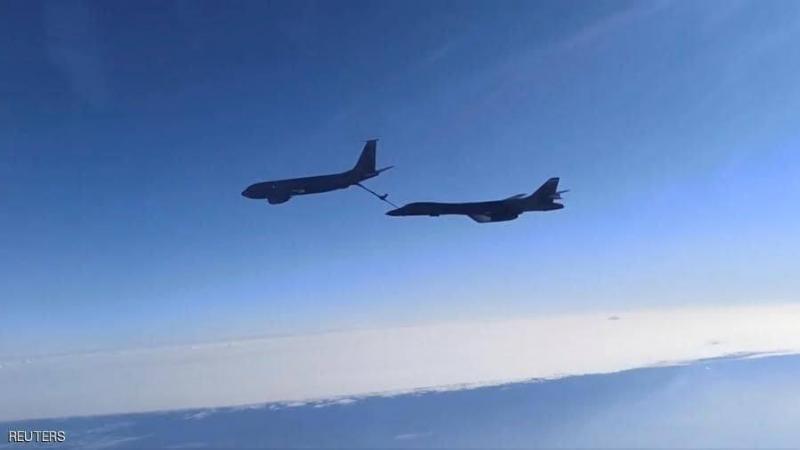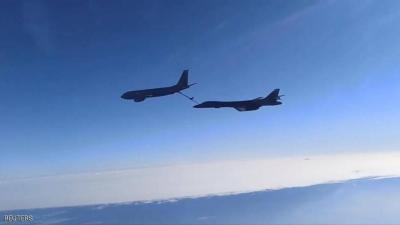Russian naval forces in the Black Sea participated in exercises on Tuesday aimed at destroying enemy targets, amid Russian discontent over the presence of two American warships, signaling an increase in tensions in the region. President Vladimir Putin stated on Monday that Russian forces would closely monitor the U.S. command ship Mount Whitney, expressing concern about NATO's activities near Russian borders.
On alert, the Russian Black Sea Fleet reported that its ships trained on destroying enemy targets, with air defense systems on high alert at their bases in Novorossiysk and Crimea. Russia had previously warned Western countries against sending their warships to the Black Sea and approaching the coast of Crimea, which Moscow annexed in 2014, internationally recognized as part of Ukraine.
On Monday, the U.S. Navy announced that the Mount Whitney had arrived in Istanbul and would soon join other ships in the Black Sea. Later, the Kremlin dismissed a U.S. media report regarding a Russian military buildup near Ukraine as "false and of low value," while noting that the repositioning of troops on Russian territory was up to Moscow.
According to the Politico news site, satellite images captured on Monday confirmed recent reports that Russia was once again mobilizing forces and military equipment along the border with Ukraine, following a significant buildup during the spring.
In the air, on October 20, the Russian Defense Ministry announced that two Russian fighter jets had prevented two American planes from violating airspace over the Black Sea. The National Defense Management Center stated that two Su-30 fighter jets escorted U.S. B-1B strategic bombers over the Black Sea, redirecting them toward Russian borders.
The center indicated that Russian radars detected targets over the Black Sea approaching Russia's borders on October 19. To identify airborne targets and prevent violations of Russian state boundaries, two Su-30 fighter jets from the Black Sea Fleet's naval aviation and air defense were sent into the air. The Russian fighters identified the targets as B-1B bombers and KC-135 transport aircraft, escorting them over the Black Sea.
The center noted that after the foreign military aircraft left Russia's state borders, the Russian fighters returned to their base safely, and no boundary violations occurred.
In late June, Ukraine and the United States conducted large-scale military exercises with the participation of 30 countries in the Black Sea and southern Ukraine, despite Russian objections. The "Sea Breeze 2021" exercises followed heightened tensions between NATO and Moscow, which stated it would respond "if necessary to protect its national security."
Relations between Kyiv and Moscow deteriorated after the Crimea annexation and due to Russia's support for separatists in eastern Ukraine. The exercises also sparked a side crisis between Russia and Britain, as Moscow claimed that its border guard forces fired warning shots and bombs after a British warship allegedly breached its borders off the coast of Crimea, an assertion denied by the British military, emphasizing that it had entered an internationally recognized shipping lane.
Russia seeks to enhance its dominance over the Black Sea basin as a vital area to ensure its strategic interests, which manifest in various issues such as energy transport lines, military fleet bases, regional security, trade, and increasing dominance to access the Mediterranean Sea while obstructing NATO and Western influence in the region.
In this context, Russia has increased its Black Sea fleet personnel to 25,000 military personnel, with 21 major warships, 7 submarines, and 200 support vessels, alongside more than 28,000 naval troops sent to the region.
Political sociology professor at the American University, Saeed Sadek, remarked that the Black Sea area could witness skirmishes, such as vessels entering territorial waters or aircraft entering airspace, while ruling out open warfare.
Sadek stated that Russia aims to "freeze conflicts" in the Black Sea and Crimea rather than engage in war, as Putin understands that transforming the turbulent waters of the Black Sea into a potential battleground eliminates any hope of restoring relations with the West.
The Russian supremacy in Eastern Europe poses a political dilemma for the U.S. administration, as it cannot penetrate the Black Sea, even though it is a region of vital interests for America. The U.S. is encircling Russia using other methods, engaging in Black Sea-related projects to prevent potential competitors from becoming real adversaries, forming regional alliances against its dominance, while also curbing Russian influence expansion.




